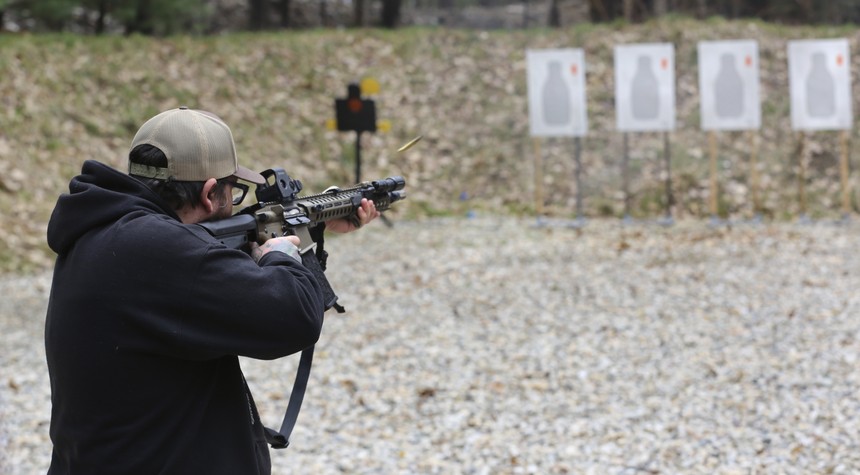(The Hill) – A handful of House Republicans bucked their party to vote for gun legislation on Wednesday, supporting measures that were introduced after the mass shootings in Buffalo, N.Y. and Uvalde, Texas last month.
The marquee piece of legislation that cleared the chamber was the Protecting Our Kids Act, a package of bills that seek to tighten gun restrictions. Among the provisions are raising the minimum age to purchase a semi-automatic weapon from 18 to 21 and banning civilians from using high-capacity magazines.
The legislation is doomed in the Senate because of widespread GOP opposition. The package passed the House in a largely party-line vote of 223-204. One Republican did not vote.
Five Republicans broke from the party in supporting the measure: Reps. Adam Kinzinger (Ill.), Anthony Gonzalez (Ohio), Brian Fitzpatrick (Pa.), Chris Jacobs (N.Y.) and Fred Upton (Mich.).
Kinzinger, Gonzalez, Jacobs and Upton are all not seeking reelection this year. Jacobs bowed out of seeking another term last week after he came under fire within the party for expressing support for an assault weapons ban.
The lawmakers voted for the package despite party leadership advocating against the legislation. Minority Whip Steve Scalise’s (R-La.) office sent a memo to House GOP offices on Tuesday encouraging members of the conference to vote “no” on the sweeping measure.
“In the wake of the senseless, malevolent shootings seen in recent months, the Majority has thrown together this reactionary package comprised of legislation that egregiously violates law-abiding citizens’ 2nd Amendment rights and hinders Americans’ ability to defend and protect themselves and their families,” the memo read.
In addition to voting on the entire package, the House also held votes on each individual provision. The full package, however, is the only piece of legislation that will be sent to the Senate for consideration.
Last week, Majority Leader Steny Hoyer (D-Md.) said the House would vote on each provision “to place Republicans on record on each of these issues relating to gun safety.”
Six of the seven provisions passed in largely party-line votes, with only a handful of Republicans joining Democrats. The last provision, however, had widespread bipartisan support. It orders the attorney general to submit a report to congressional committees detailing individuals who could not purchase a firearm because they failed a background check.
Rep. Jim Jordan (R-Ohio), the ranking member of the House Judiciary Committee, recommended that members vote against the first six provisions, but signaled support for the final one.
Kinzinger, Fitzpatrick and Jacobs supported all six provisions that Jordan recommended the conference oppose. A number of other Republicans joined the trio in voting for some of the individual measures.
The provision that would impose a ban on bump stocks for civilians received the most GOP support among the measures that Jordan recommended voting against.
The initiative passed in a 233-194 vote, with 13 Republicans bucking the party: Reps. Mike Turner (Ohio), John Katko (N.Y.), Anthony Gonzalez (Ohio), Chris Jacobs (N.Y.), Nicole Malliotakis (N.Y.), Chris Smith (N.J.), Maria Salazar (Fla.), David Valadao (Calif.), Ken Calvert (Calif.) David Joyce (Ohio), Kinzinger, Upton and Jacobs.
The provision that calls for raising the minimum age for purchasing a firearm from 18 to 21 cleared the House in a 228-199 vote. Ten Republicans supported that effort: Turner, Katko, Upton, Gonzalez, Fitzpatrick, Kinzinger, Jacobs, Malliotakis, Smith and Salazar.
The list of GOP defectors was similar for the measure to mandate that untraceable firearms and guns without serial numbers, also referred to as ghost guns, undergo background checks and receive serial numbers.
The House passed the provision in a 226-194 vote, with eight “yes” votes: Fitzpatrick, Kinzinger, Jacobs, Katko, Malliotakis, Upton, Gonzalez and Smith.
On a provision creating new federal crime offenses for gun trafficking and straw purchases of firearms, which is when people who are not able to clear background checks purchase firearms through a proxy, 7 Republicans bucked the party to support the measure in a 226-197 vote.
Fitzpatrick, Kinzinger, Malliotakis, Gonzalez, Jacobs, Salazar and Katko all voted “yes.”
Four Republicans voted for the provision that calls for prohibiting civilian use of ammunition magazines that have more than 15 rounds: Kinzinger, Jacobs, Upton and Fitzpatrick. The measure passed in a 220-207 vote.
The provision that received the least GOP support seeks to bolster safe storage of guns in homes where minors may have access to the firearms. Kinzinger, Fitzpatrick and Jacobs were the only GOP defectors. The effort, however, ultimately cleared the House in a 220-205 vote.

